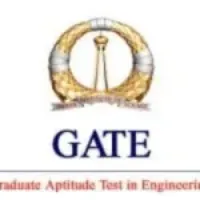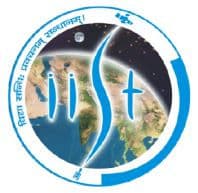Latest Applications Open 2024:
The GATE 2025 syllabus for Production & Industrial Engineering has been officially released by IIT Roorkee. This national-level examination is a key gateway for admission to postgraduate programs in engineering and technology, specifically ME/M.Tech. The updated syllabus for Production & Industrial Engineering outlines the critical areas of study necessary for candidates aiming to excel in the exam.
The GATE 2025 exam is scheduled for the 1st, 2nd, 15th, and 16th of February 2025. The syllabus for Production & Industrial Engineering includes essential topics such as production processes, industrial engineering principles, operations research, quality control, and supply chain management. This broad coverage ensures that candidates are well-prepared to tackle advanced concepts and practical challenges in the field.
For detailed and current information on the GATE 2025 syllabus for Production & Industrial Engineering, candidates should review the official guidelines provided by IIT Roorkee. Effective preparation based on this syllabus will be crucial for achieving a strong performance in the exam and advancing in the field of Production & Industrial Engineering.
GATE 2025 Production & Industrial Engineering Syllabus – PDF Released
GATE 2025 Production and Industrial Engineering Syllabus has been Released. Click to Download Production & IES Syllabus PDF.
Section 1: Engineering Mathematics
Linear Algebra: Matrix algebra, Systems of linear equations, Eigenvalues, and eigenvectors.
Calculus: Functions of a single variable, Limit, continuity and differentiability, Mean value theorems, Evaluation of definite and improper integrals, Partial derivatives, Total derivative, Maxima and minima, Gradient, Divergence and Curl, Vector identities, Directional derivatives, Line, Surface and Volume integrals, Stokes, Gauss and Green’s theorems.
Differential equations: First-order equations (linear and nonlinear), Higher order linear differential equations with constant coefficients, Cauchy’s and Euler’s equations, Initial and boundary value problems, Laplace transforms, Solutions of one-dimensional heat and wave equations and Laplace equation.
Complex variables: Analytic functions, Cauchy’s integral theorem, Taylor series.
Probability and Statistics: Definitions of probability and sampling theorems, Conditional probability, Mean, median, mode and standard deviation, Random variables, Poisson, Normal and Binomial distributions.
Numerical Methods: Numerical solutions of linear and non-linear algebraic equations Integration by trapezoidal and Simpson’s rule, single and multi-step methods for differential equations.
Section 2: General Engineering
Engineering Materials: Structure and properties correlation; engineering materials (metals, ceramics, polymers, and composites) – properties and applications; stress-strain behaviour of metals and alloys;iron-carbon phase diagram, heat treatment of metals and alloys, its influence on mechanical properties.
Applied Mechanics: Engineering mechanics – equivalent force systems, free body concepts, equations of equilibrium; trusses; the strength of materials – stress, strain and their relationship; failure theories, Mohr’s circle(stress), deflection of beams, bending and shear stress, Euler’s theory of columns.
Theory of Machines and Design: Analysis of planar mechanisms, cams, and followers; governors and flywheels; design of bolted, riveted and welded joints; interference/shrink-fit joints; design of shafts, keys, spur gears, belt drives, brakes, and clutches; pressure vessels.
Thermal and Fluids Engineering: Fluid mechanics – fluid statics, Bernoulli’s equation, flow through pipes, equations of continuity and momentum, capillary action, contact angle, and wetting; thermodynamics – zeroth, first and the second law of thermodynamics, thermodynamic system and processes, calculation of work and heat for systems and control volumes; air standard cycles; heat transfer – basic applications of conduction, convection, and radiation.
Section 3: Manufacturing Processes I
Casting: types of casting processes and applications; patterns – types and materials; allowances; moulds and cores – materials, making, and testing; casting techniques of cast iron, steels, and nonferrous metals and alloys; analysis of solidification and microstructure development; design of gating and riser; the origin of defects.
Metal Forming: Stress-strain relations in elastic and plastic deformation; the concept of flow stress; hot and cold working – forging, rolling, extrusion and wire drawing; sheet metal working processes – blanking, bending and deep drawing; ideal work and slab analysis; the origin of metalworking defects.
Joining of materials: Principles of fusion welding processes(manual metal arc, MIG, TIG, plasma arc, submerged arc welding processes)-different heat sources (flame, arc, resistive, laser, electron beam), and heat transfer and associated losses, flux application, feeding of filler rod; Principles of solid-state welding processes (friction, explosive welding, ultrasonic welding processes); Principles of adhesive, brazing and soldering processes; Origins of welding defects.
Powder processing: Production of metal/ceramic powders, compaction, and sintering of metals and ceramic powders.
Polymers and Composites: Plastic processing – injection, compression, and blow moulding, extrusion, calendaring and thermoforming; moulding of composites.
Section 4: Manufacturing Processes II
Machine Tools and Machining: Basic machine tools like centre lathe, milling machine, and drilling machine – construction and kinematics; machining processes – turning, taper turning, thread cutting, drilling, boring, milling, gear cutting, thread production, grinding; the geometry of single-point cutting tools, chip formation, cutting forces, specific cutting energy and power requirements, Merchant’s analysis; the basis of selection of machining parameters; tool materials, tool wear and tool life, the economics of machining, thermal aspects of machining, cutting fluids, machinability; Jigs and fixtures – principles, applications, and design
Non-traditional Manufacturing: Principles, applications, the effect of process parameters on MRR and product quality of non-traditional machining processes – USM, AJM, WJM, AWJM, EDM, and Wire-cut EDM, LBM, EBM, PAM, CHM, ECM.
Computer Integrated Manufacturing: Basic concepts of CAD – geometric modelling, CAM – CNC and robotics – configurations, drives and controls, Group Technology, and its applications – CAPP, cellular manufacturing, and FMS.
Section 5: Quality and Reliability
Metrology and Inspection: Limits, fits, and tolerances, gauge design, interchangeability, selective assembly; linear, angular, and form measurements(straightness, squareness, flatness, roundness, and cylindricity) by mechanical and optical methods; inspection of screw threads and gears; surface finish measurement by contact and non-contact methods; tolerance analysis in manufacturing and assembly.
Quality management: Quality – concept, and costs; quality assurance; statistical quality control, acceptance sampling, zero defects, Six Sigma; total quality management; ISO 9000.
Reliability and Maintenance: Reliability, availability, and maintainability; distribution of failure and repair times; determination of MTBF and MTTR, reliability models; determination of system reliability; preventive maintenance and replacement.
Section 6: Industrial Engineering
Product Design and Development: Principles of good product design, tolerance design; quality and cost considerations; product lifecycle; standardization, simplification, diversification, value engineering and analysis, concurrent engineering; and comparison of production alternatives.
Work System Design: Taylor’s scientific management, Gilbreth’s contributions; productivity – concepts and measurements; method study, micro-motion study, principles of motion economy; work measurement -time study, work sampling, standard data, PMTS; ergonomics; job evaluation, merit rating, incentive schemes, and wage administration.
Facility Design: Facility location factors and evaluation of alternate locations; types of plant layout and their evaluation; computer-aided layout design techniques; assembly line balancing; materials handling systems.
Section 7: Operations research and Operations management
Operation Research: Linear programming – problem formulation, simplex method, duality and sensitivity analysis; transportation and assignment models; network flow models, constrained optimization and Lagrange multipliers; Markovian queuing models; dynamic programming; simulation – manufacturing applications.
Engineering Economy and Costing: Elementary cost accounting and methods of depreciation; break-even analysis, techniques for evaluation of capital investments, financial statements, time-cost trade-off, resource-leveling.
Production control: Forecasting techniques – causal and time series models, moving average, exponential smoothing, trend, and seasonality; aggregate production planning; master production scheduling; MRP and MRP-II; routing, scheduling, and priority dispatching; Push and pull production systems, the concept of JIT manufacturing system; Logistics, distribution, and supply chain management; Inventory – functions, costs, classifications, deterministic inventory models, quantity discount; perpetual and periodic inventory control systems.
Project management – PERT and CPM.
Other GATE Related Syllabus PDF
| Syllabus | Code | Syllabus | Code |
| Data Science & Artificial Intelligence | (DA) | Biotechnology | (BT) |
| Agricultural Engineering | (AG) | Civil Engineering | (CE) |
| Architecture and Planning | (AR) | Chemical Engineering | (CH) |
| Computer Science and Information Technology | (CS &IT) | Chemistry | (CY) |
| Electronics and Communication Engineering | (EC) | Electrical Engineering | (EE) |
If you any queries regarding the GATE 2025 Production & Industrial Engineering Syllabus, you can ask your query leave comments below.

As a dedicated Biology Science graduate, I’m passionate about sharing the latest updates in national and state entrance exams through my blog. I aim to keep aspiring students informed about exam trends, important dates, and changes in syllabi. With a keen interest in education, I strive to offer valuable insights for students navigating the competitive landscape of entrance examinations and admission tests. Stay updated with me.


